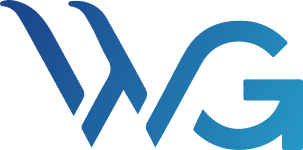For generations, family offices have navigated private markets through personal relationships, institutional networks, and manual processes. Deal flow arrived through trusted channels. Due diligence happened in spreadsheets. Portfolio tracking relied on quarterly reports.
This worked when private markets were smaller and simpler. It no longer does.
The alternatives market is projected to reach nearly $29.2 trillion by 2029—up from approximately $16.8 trillion in 2023. Private credit alone is forecast to approach $2.8 trillion by 2028. Secondary market transactions crossed $150 billion in 2024, setting a new record.
As private capital scales and accelerates, the infrastructure supporting it must evolve. The question isn’t whether family offices should modernize—it’s how quickly they can transition to connected capital ecosystems.
Why Legacy Approaches Are Failing
Disconnected data systems force teams to manually reconcile information across spreadsheets, emails, and point solutions. Errors compound. Opportunities slip through the cracks.
Opaque deal flow means promising investments never reach many family offices. Without access to broader networks, smaller offices miss opportunities that institutional players see first.
Illiquidity constraints lock capital into multi-year commitments with limited exit options. Despite growing secondary markets, many offices lack the infrastructure to access them.
Rising complexity in deal structures—co-investments, continuation vehicles, cross-border transactions—overwhelms manual processes. Alternative forms of capital are driving multi-trillion-dollar growth, and these sophisticated structures demand sophisticated systems.
The cost of inefficiency is no longer frustration—it’s competitive disadvantage.
The Connected Ecosystem Advantage
Connected capital ecosystems provide unified infrastructure across the entire investment lifecycle:
Intelligent Deal Discovery – AI-driven engines surface opportunities aligned with investment thesis and risk profile. Family offices identify deals proactively, often before competitors.
Automated Due Diligence – Data ingestion pulls information into standardized models. AI-powered analytics handle screening and risk scoring. Weeks of work compress into days.
Streamlined Transactions – Standardized documentation, digital workflows, and automated capital calls reduce friction. Distributed ledger technology eliminates reconciliation entirely.
Real-Time Portfolio Intelligence – Dynamic dashboards provide instant visibility into performance, exposure, and benchmarks. No more waiting for quarterly reports.
Embedded Liquidity – Marketplace modules connect offices seeking partial exits with buyers, improving capital flexibility.
Collaborative Workflows – Permissioned networks enable secure interaction among investors, founders, and advisors with full transparency and audit trails.
The Competitive Advantage
Family offices with integrated platforms gain tangible benefits:
- Earlier access to opportunities before they’re widely circulated
- Faster diligence with teams focusing on strategic questions rather than data collection
- Reduced overhead as platforms handle routine workflows
- Capital flexibility through access to secondary liquidity
- Institutional capabilities at any scale without building custom infrastructure
- Enhanced risk management with real-time monitoring and compliance
For offices competing for direct deals alongside institutional allocators, these advantages compound over time.
Alpha Hub: Integration in Practice
Platforms like Alpha Hub demonstrate comprehensive integration. By combining deal sourcing, capital raising, market intelligence, transaction workflows, portfolio management, and secondary liquidity in a unified interface, they offer family offices a turnkey alternative to patchwork solutions.
Key capabilities include AI-driven opportunity matching, embedded legal documentation, real-time stress testing, and marketplace modules for secondary transactions. Rather than managing multiple vendors with different data formats, offices operate from a single environment designed for private capital.
This integration creates compounding efficiency gains: faster diligence enables participation in more deals, better deal flow improves portfolio construction, and improved portfolios attract co-investment partners.
Looking Forward
The next phase of private capital will be shaped by family offices that fundamentally reimagine how capital moves—embracing digital infrastructure that transcends legacy silos. Those who move first will establish advantages that compound: better deal flow, faster execution, deeper relationships, superior outcomes.
The infrastructure exists. The incentives align. Is your family office ready to transition from legacy operator to ecosystem participant?
References:
- Preqin, Future of Alternatives 2029 forecast: global alternatives AUM to reach $29.2 trillion by 2029 (GlobeNewswire)
- McKinsey, Global Private Markets Report 2025 (McKinsey & Company)
- Preqin Academy forecasts: private debt AUM to hit $2.8 trillion by 2028 (preqin.com)
- Brookfield / Moody’s estimate: private credit toward $3 trillion (Brookfield)
- Reuters: private equity secondary market crossing $150 billion in 2024 (Reuters)
- iCapital DLT infrastructure overview (iCapital)
- Bain / Broadridge blockchain fund admin use cases (Bain)
About Alpha Hub: Alpha Hub is an all-encompassing Private Capital Platform that empowers investment professionals, start-ups, and capital-raising companies with advanced tools for deal sourcing, capital raising, market intelligence, transaction management, and pipeline management. With our seamless, integrated solution, you can streamline your investment process and achieve unparalleled success in the private capital markets.
#FamilyOffices #PrivateCapital #DigitalTransformation #AlternativeInvestments #InvestmentTechnology #PrivateMarkets #PortfolioManagement #FinTech

